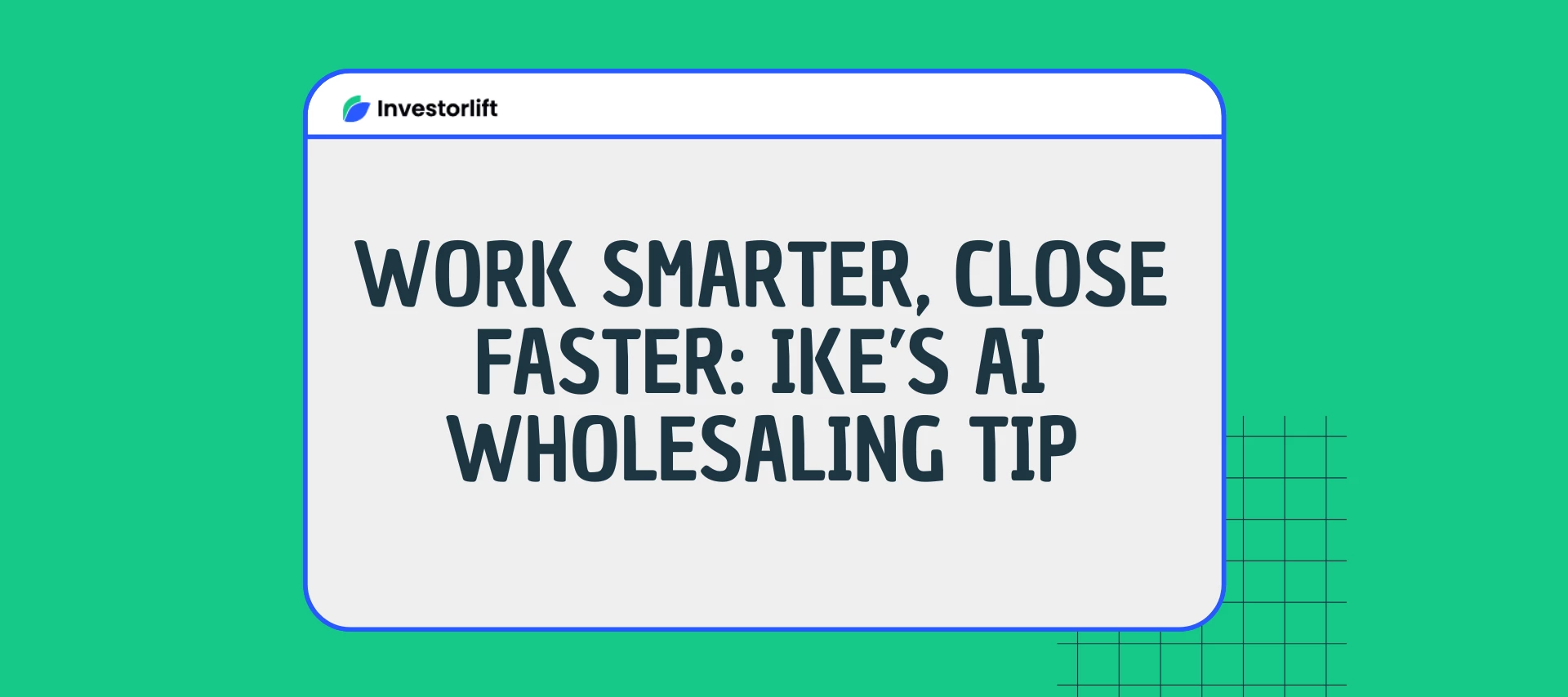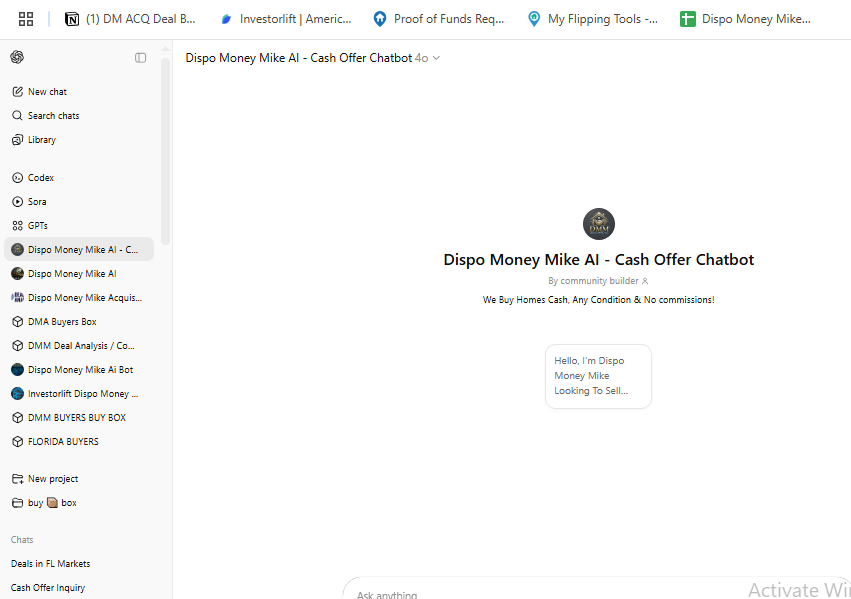Hi community!
Every Wednesday, Dispo Day brings together the sharpest wholesalers in the game, and last week was no exception. Among the prize winners was
🧠 Ike’s Game-Changing ChatGPT Workflow
Here’s the tip Ike shared live that’s transforming how he runs his business:
“I created a project inside ChatGPT for my repeated tasks like writing property descriptions. It’s got a standard prompt that asks me all the right questions. I just drop in my info and it spits out the perfect description.”
But it doesn’t stop there.
“I also have one that takes my call transcripts and turns them into notes for my CRM. Eventually, I’ll automate it completely - transcripts in, CRM updated. Done.”
🔥 That’s next-level efficiency.
Why This Matters
In a market where speed and polish win deals, Ike’s approach shows how smart automation can give you back hours and help you dispo faster with better output. And it’s all possible with tools like ChatGPT, integrated seamlessly into your daily ops.
🏆 Win Like Ike
Dispo Day isn’t just for learning - it’s for leveling up. Every week, one lucky attendee wins!
👉🏻 Register to the next one now!





